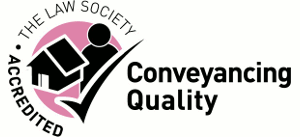Stamp Duty Explained
You’ll need to pay Stamp Duty Land Tax (SDLT) when buying a property over a certain amount. We explain how stamp duty works, when it applies, how to pay it and the latest stamp duty rates.
- What is stamp duty?
- What is a stamp duty threshold?
- How much is stamp duty now?
- When does stamp duty apply?
- When do you have to pay stamp duty?
- What was the stamp duty holiday?
- How to pay stamp duty
- How can I calculate stamp duty?
- How much stamp duty does a first-time buyer pay?
- Stamp duty on second homes
- Refund for higher rates of stamp duty
- When do you not have to pay stamp duty?
- Can I add stamp duty to my mortgage?
- Stamp duty returns
Starting from 23 September, the threshold for stamp duty on residential properties has been raised from £125,000 to £250,000. First-time buyers are now exempt from stamp duty on home purchases up to £425,000 in England and Northern Ireland. They’ll pay 5% stamp duty on the portion of the property price from £425,001 to £625,000. The threshold for first-time buyers was previously £300,000.
Stamp duty bands now work like this:
There’s only a few exemptions to the need to pay stamp duty, and these include:
See more on the stamp duty holiday.
Stamp duty rates from 23 September 2022
(Property price - Stamp duty rate)
If the property costs more than £625,000, first-time buyers pay the standard rates of stamp duty.
You don’t have to pay the additional tax if your second home is a caravan, mobile home or houseboat.
You’ll also need to pay the additional charge if you buy your new residential property before you’ve sold the previous one because, for a short time at least, you’ll own two homes (in these circumstances, there may be ways of claiming back the additional tax via your self-assessment tax return).
The 3% surcharge applies to any of the following:
However, if you can sell (or even give away) your old home within three years of the purchase of your new one, you’ll be able to apply for a refund on the amount charged at the higher rate. That gives you some time to get things sorted, but you’ll still need to pay the higher rate to begin with.
To be eligible for the refund, you must also claim within 12 months of selling your old home or 12 months of filing your stamp duty tax return, whichever of those is later.
A return must still be submitted even if no stamp duty is payable.
Guide provided by Comparethemarket
Why Choose Bartletts Solicitors?
Solid Traditional Values Delivered
in a Modern Convenient Manner
Our firm has years of experience of property transfers in the city of Liverpool and across Merseyside.
Law Society Accredited for Conveyancing Quality. Competitive fixed fees, no obligation free quotations and no hidden costs.
Your conveyance will be handled by Louise Nelson, a solicitor with over 40 years’ experience of helping people buy and sell property in Liverpool.
Louise heads a friendly team of experienced conveyancers. Jenny Thomas, Louise Drewry and Lucy Baines have detailed knowledge of the files they work on, meaning when you call you will get prompt answers and updates.
Bartletts Solicitors was managed by John Bartlett for over 40 years, the last 25 of which he was assisted by Trevor Morris. Trevor is now the managing director, representing continuity for the firm’s traditional values and customer satisfaction ethos.
Send Our Liverpool Conveyancing Solicitors an Enquiry:
(or give us a call on 0151 227 3391)


All conveyancing and property-related work is supervised by Louise, who has worked as a solicitor for over 40 years. Louise has spent her entire career at our firm. Bartletts has earned the Law Society’s Conveyancing Quality accreditation, which is a difficult stamp of approval to obtain. Every property lawyer at the firm is examined and checked by the Law Society every year. Many firms fail to achieve this mark of quality.
Further Information:
- Right to Buy Your Home
- First-Time Buyers
- Buy-to-Let
- Residential Stamp Duty Rules on Second Homes
- Fixed Prices for Our Residential Conveyancing Services
Related Trustpilot Reviews:
Bartletts is proud to support a number of public bodies and charities, including Liverpool Cathedral, National Museums Liverpool, the Walker Art Gallery and Zoë’s Place Baby Hospice. You can find out more on our blog or on social media.
“I was delighted Bartletts Solicitors continued their tradition of philanthropy with Liverpool Cathedral this year. Thank you so much for your generous gift.” - The Dean of Liverpool, The Very Revd Dr. Sue Jones (Dec 2020)



